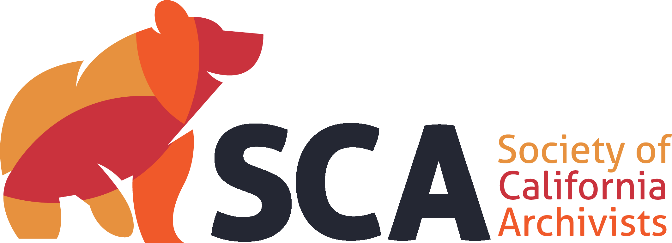Labor Advocacy Resources
List of Resources from the SCA Task Force on Labor Issues Within the Profession as found in the Final Report (PDF).
Best Practices for Archival Term Positions v. 1
Best practices for administrators, hiring managers, and supervisors to put into action when planning for and employing archival term positions.
COVID-19 Resources for California’s Nonprofits
From the The California Association of Nonprofits
Collective Responsibility Labor Advocacy Toolkit
Collects resources developed to document and change the landscape of contingent labor in Libraries, Archives, and Museums (LAM).
Digital Library Federation (DLF) Labor Working Group
The DLF Labor Working Group has been leading the conversation on labor advocacy for years and members of this group are responsible for the above-mentioned Collective Responsibility project. This group is active, passionate, and always looking for new members.
For a recap of their mission and work, to join, view meeting minutes, etc.
The most comprehensive list available of all labor advocacy work in the GLAM community.
Guidelines for Developing and Supporting Grant-Funded Positions in Digital Libraries, Archives, and Museums
From Do Better Labor, this document is a set of guidelines for granting agencies, grant writers, and grant reviewers supporting the ethical creation of contingent positions in digital library work.
The Fair Labor Association’s 2020 Fair Compensation Strategy
The mission of the Fair Labor Association is to combine the efforts of business, civil society organizations, and colleges and universities to promote and protect workers’ rights and to improve working conditions globally through adherence to international standards.
MIT Living Wage calculator
The tool helps individuals, communities, and employers determine a local wage rate that allows residents to meet minimum standards of living.
The National Council of Nonprofits’ Managing Nonprofit Employees
The National Council of Nonprofits is the largest network of nonprofits in North America.
Organizing Power
A 20-page Risograph-printed booklet designed by Bay Area artist Jessalyn Aaland to provide arts/nonprofit workers with tools to organize a union at their workplace. Physical copies of this beautiful, practical resource are available for the cost of shipping.
“The Power of Words: Cultural Humility as a Framework for Anti-Oppressive Archival Description”
by Jessica Tai, in “Radical Empathy in Archival Practice,” eds. Elvia Arroyo-Ramirez, Jasmine Jones, Shannon O’Neill, and Holly Smith. Special issue, Journal of Critical Library and Information Studies 3
University College London’s “Report and Support” website is an anti-bullying resource that would serve as a good model for other universities to adopt. Bullying is not uncommon in contingent positions. These resources and University-specific or more general whistleblower policies should be made widely available, where appropriate. The University ombudsperson is also a helpful resource for mediation and conflict-resolution.
The XPDNC Labour Directory is not secure but recommended by Cornell University Library.
Their description of the site: This is an excellent directory of labor-related Internet sites around the world (This site has ads and pop-ups which may obscure content, scroll past to locate the directory). In addition to listing web sites for international, national, and local labor unions, XPDNC has organized web sites under useful and interesting categories such as Corporate Agenda, Labour Online, Media Outreach. Web sites within each category are organized by geographic area.
“Wages for Intern Work: Denormalizing Unpaid Positions in Archives and Libraries”
by Karly Wildenhaus, in “Evidences, Implications, and Critical Interrogations of Neoliberalism in Information Studies,” eds. Marika Cifor and Jamie A. Lee. Special issue, Journal of Critical Library and Information Studies 2, no.1 (2019).
